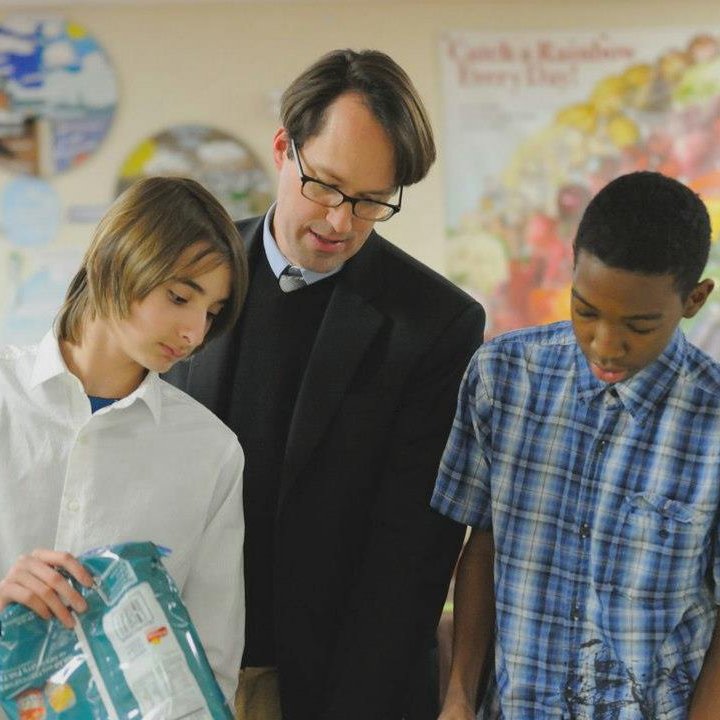I am really excited to welcome you to Teaching Our Cities -- a web resource center dedicated to rooting urban public schools in their urban environments. I hope you'll explore this web site, and share it with others who care about city students and city schools.
In a hundred different ways, urban public high schools can turn their backs on their cities. They can fortify themselves with fences and metal detectors, police officers and locked doors, in the name of keeping their students safe. They can cancel field trips and outdoor experiences in order to double down on test prep and traditional classroom education. They can elevate and celebrate knowledge, standards, and ways of communicating that are remote from those that their students experience when they leave the school building behind. They can, in a misplaced effort to honor the teaching profession, forget that their cities are full of educators that may not have earned certification -- from parents, to staff at community organizations, to local artists and community gardeners. They can try their best to mimic the cultures of wealthy suburban districts, or fancy private schools, because this is what “good schools” look like. They can try to convince their students that the only path to success is to leave their families, neighborhoods, and cities behind.
Or city schools can do something different, and embrace the cities that they and their students call home.
Urban public high schools can do as New Roots Charter School does, and turn their whole city of Ithaca, New York, into their school building -- serving school lunch in a local church, holding whole-school meetings at a local arts organization, and teaching science by restoring a local wetland. Explore how New Roots helps students develop a sense of place in Ithaca.
They can follow the lead of students at Boston Green Academy -- ending each school year by using what they are learning in classes to tackle big challenges from gentrification, to food justice, to where to put a city worth of waste. Learn more about Green Exhibitions at Boston Green Academy.
Schools can cancel all classes a half dozen times each school year, as Connecticut River Academy does -- dedicating full days to cleaning up the river that runs by their campus, or honoring the cultures of their African American and Hispanic students, or putting on a recycled fashion show for Earth Day. See how Connecticut River Academy uses Magnet Theme Days to bring their school's values to life: diversity, awareness, and action.
They can give students credit for the learning they do out in the community and outside the school day -- as is the case at Common Ground High School in New Haven, where every student creates and defends a portfolio that shows their growth as a learner and leader, drawing on experiences in and outside of school. Listen in on Common Ground students' portfolio defenses, and access the resources and support help them build their portfolios.
Even schools that aren’t located in an urban environment -- but which teach city students -- can honor and celebrate the places these students call home. At The Greene School in Rhode Island, for instance, students engage in a different “learning expedition” every semester -- opening up space to do field work in nearby urban centers, or organize a waste summit in Providence elementary schools, or take on a major independent research and action project focusing on students’ home communities. Check out how these expeditions work, and the student learning that results.
We know a lot about how to create urban public schools that are part of the fabric of their cities, that meet city students where they are, that leverage a city full of resources to help students succeed, and that engage students as leaders in tackling urban environmental challenges. Two years ago, the five schools just mentioned came together to learn from each other, to do better by their cities and their city students. With support from the Environmental Protection Agency and other funders, these schools launched Teaching Our Cities -- an effort aimed at rooting urban public schools in the urban environment.
Our schools still have many seasons worth of work ahead to grow the educational opportunities our students and our cities deserve. We need to make room for a new generation of teachers who call our cities home, who share more in common with our predominately black and brown students. We are constantly working to more fully integrate our students’ home communities and challenging academic work, as well. And we sometimes struggle with how much to work within the policy environment impacting urban public schools, and how much to push back against its restrictions.
But our schools are on the road, and we welcome others who want to join us in this journey. This month, we are ready to share this new online resource center, dedicated to the work of teaching our cities. This web site is full of voices from our schools, and homegrown resources created by our teachers, and our students’ amazing work, and videos that will let you get inside our schools and out into our cities. It’s both a self-interested effort to help ourselves and our students, and an offering to all those who care about young people growing up in cities.
This resource is very much a work in progress, just a start of what we need -- so please offer your contributions and critiques. You can contact us using the form at the bottom of this page. We need you in this effort to ground urban public schools in the urban environment.

